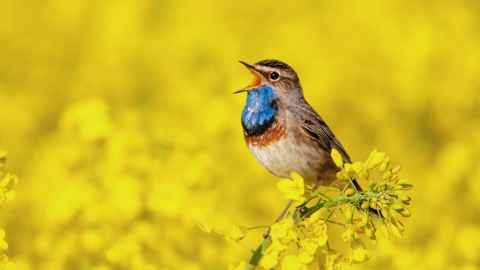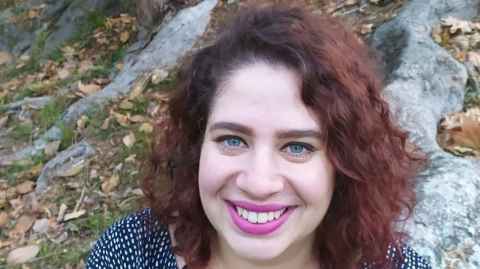Lack of sleep can change how birds sing
19 August 2022
Humans aren't the only ones who need a good night's sleep, researchers say.

Lack of sleep can change how birds sing, University of Auckland scientists say.
PhD student Juliane Gaviraghi Mussoi, Dr Margaret Stanley and Dr Kristal Cain, all of the School of Biological Sciences, highlighted the issue in an article published on 17 August in the journal Biology Letters, Importance of sleep for avian vocal communication.
They worked on a study conducted in Australia that found that sleep-deprived magpies sang fewer but longer songs. Lack of sleep can alter the pitch, length and timing of birds’ vocalisations, according to Mussoi.
Work by a different group of scientists found that zebra finches move their throat muscles while sleeping, indicating that they replay songs in their sleep, and need sleep to accurately learn songs.

“It makes sense that, like humans, birds may struggle with communication when they don’t get the sleep they need,” says Mussoi. “But because of a lack of research, we’re only just starting to get a sense of exactly what happens when birds are sleep deprived.”
Urban sprawl means more birds face sleep disruption from light and noise, potentially affecting vocalizations used for attracting mates, defending territory and recognising species.
In the article, the scientists say research on the effects of sleep disturbance on birds is “shockingly scarce.”
Sleep-like behaviour is ubiquitous in animals, from jellyfish and flatworms to mammals, with links to brain development, the consolidation of memories, learning, alertness and motivation, cognition and communication.
Sleep effects on birds may vary, Mussoi says, because of differences between birds which are life-long learners of songs, those which stop learning after acquiring a set range of vocalisations, and the “innate vocalisers” who don’t need to learn (most bird species.)
* To learn more about the use of animals in research and teaching at the University of Auckland, read Openness in the use of animals in research.
Media contact
Paul Panckhurst | media adviser
M: 022 032 8475
E: paul.panckhurst@auckland.ac.nz